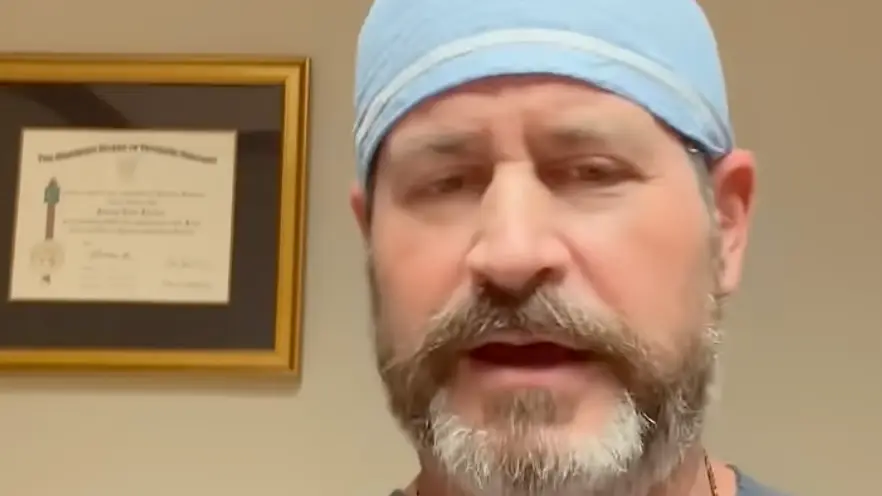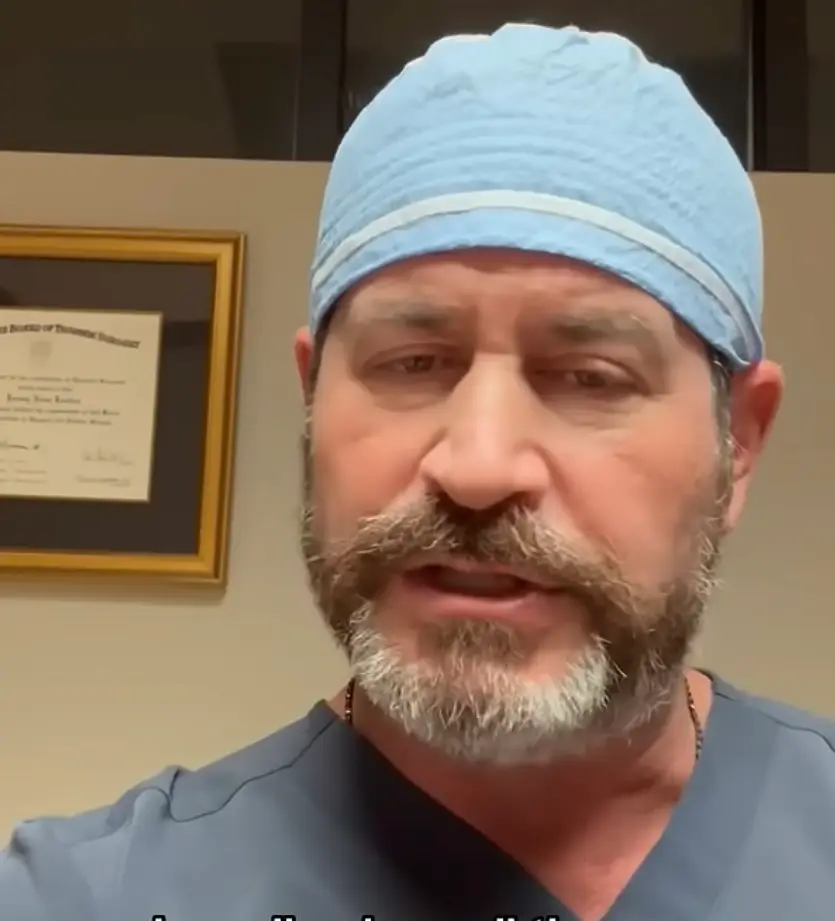
A cardiovascular surgeon has revealed what 'red flags' to look out for which could indicate that you have a weak heart.
Dr Jeremy London has been looking after his patients tickers for more than 25 years, so he certainly knows a thing or two about heart health. He often shares nuggets of wisdom online in the hopes of encouraging people to take better care of themselves by providing 'easy-to-understand, relatable health information' for his audience.
However, he makes it clear he is 'not [issuing] medical advice', so if you've got any serious concerns, you should take them up with your own GP as soon as possible.
Based in the US state of Georgia, the medic previously posted a clip to YouTube explaining how you can pick up on the fact that your heart isn't performing as it should.warned his more than one million followers on social media that they need to be wary if they have a 'weak heart'. This term is generally used to describe the heart muscle not pumping blood efficiently, which is also known as heart failure.
Advert

The NHS explains that although this might sound sinister, 'heart failure does not mean your heart has stopped working'.
"It means it needs some support to help it work better," it states. "It can occur at any age, but is most common in older people.
"Heart failure is a long-term condition that tends to get gradually worse over time. It cannot usually be cured, but the symptoms can often be controlled for many years."
So, how can you tell that your headed for heart failure?
Well, according to Dr London, the first step is visiting a health expert, explaining your medical history and undergoing a physical examination. But before you book in with your GP, you should keep an eye out for some symptoms which can often be an indicator of heart failure.
Dr London explained that these include 'shortness of breath when walking', 'the inability to lay flat and breathe comfortably' and 'swollen legs'.

"All of those are signs of many different heart conditions, they should be red flags," the father-of-three said in the clip.
The main symptoms of heart failure are breathlessness after activity or at rest, feeling tired most of the time and finding exercise exhausting, feeling lightheaded or fainting, or swollen ankles and legs, the NHS says.
But other sufferers have also reported experiencing a persistent cough, a fast heart rate and dizziness too, so if anything seems awry, it's best to get checked out as soon as possible.
Thanks to the marvel that is modern medicine, Dr London says experts can 'simply' find out whether a patient has heart failure. He explained that doctors can use an echocardiogram, which is a type of ultrasound scan, to evaluate a person's heart health.
"A small probe is used to send out high-frequency sound waves that create echoes when they bounce off different parts of the body," the NHS explains.
"These echoes are picked up by the probe and turned into a moving image on a monitor while the scan is carried out."
According to Dr London, an echocardiogram can 'measure ejection fraction', which is the percentage of blood that's ejected from the heart with each beat.
The average ejection fraction of a healthy ticker is '65 to 70 percent', the doctor said.
"If it's markedly decreased from that, that could be an indication of heart failure or a weak heart," he added. "In my world of cardiac surgery, heart function is the single most important determination of how patients do with surgery.
"Patients with strong hearts do much better than patients with weak hearts."
You should seek medical attention if you experience persistent or gradually worsening symptoms of heart failure, as the NHS note that the condition is 'very unpredictable'.
"Lots of people remain stable for many years, while in some cases it may get worse quickly," it said.